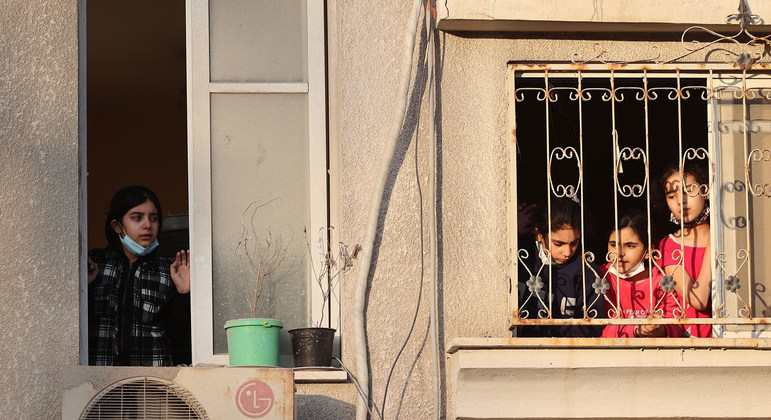
Sensitizing public opinion to the question of Palestine, and promoting a peaceful settlement to the decades-long conflict between Israelis and Palestinians, are among the goals of the 2021 UN International Media Seminar on Peace in the Middle East, which began on Tuesday.
The two-day event is taking place online and brings together journalists, media experts, think tanks, diplomats and academics from across the region and beyond.
In a video message to the opening ceremony, Secretary-General António Guterres upheld the UN’s support for a two-State solution to the conflict.
“The two‑State solution, as defined by UN resolutions, international law and bilateral agreements remains the only path to ensuring that Palestinians and Israelis can both realize their legitimate aspirations: an end to the occupation and the realization of two independent, sovereign states, living side‑by‑side in peace and security, based on the 1967 lines, and with Jerusalem as the capital of both States,” he said.
The media seminar, which has been held annually since 1991, is hosted by the UN’s Department of Global Communications (DGC) in the context of its special information programme on the question of Palestine.
Revive and resume dialogue
As the Secretary-General noted, this year’s session also marks the 30th anniversary of the historic Madrid Peace Conference, which led to dialogue between Israelis and Palestinians. It also established a crucial foundation of peace which must be carried forward.
However, the UN chief said the past years have seen more setbacks on the path to peace, and many are questioning the viability of a negotiated two-State solution.
“We cannot lose hope. We must explore every opportunity to revitalize the peace process,” said Mr. Guterres. “And I urge Israeli and Palestinian leaders to demonstrate the political will necessary to revive and resume dialogue.”
The Secretary-General underlined the UN’s ongoing commitment to work with the two sides, and with international and regional partners, to realize this goal, including through efforts by the Middle East Quartet – consisting of the UN, the European Union, the United States and Russia – which helps mediate the peace negotiations.
Mr. Guterres also recognized the critical role of the media, stating that “free and independent journalism is a cornerstone of building peaceful societies.”
Working with the media is also important for the UN Committee on the Exercise of the Inalienable Rights of the Palestinian People. The chair, Ambassador Cheikh Niang of Senegal, said the Committee relies on accurate reporting for updates on the situation in the region.
He reported on its activities and outreach, which include a website and social media accounts. High-profile events on issues such as donor support for UNRWA, the UN agency that supports Palestinian refugees, were also broadcast online.
The UN International Media Seminar on Peace in Middle East is organized around two panel discussions.
The first on Tuesday explores the theme of the Madrid conference anniversary, and asks if hope can prevail, while Wednesday’s panel will examine solutions journalism in the coverage of the Israel-Palestine conflict.